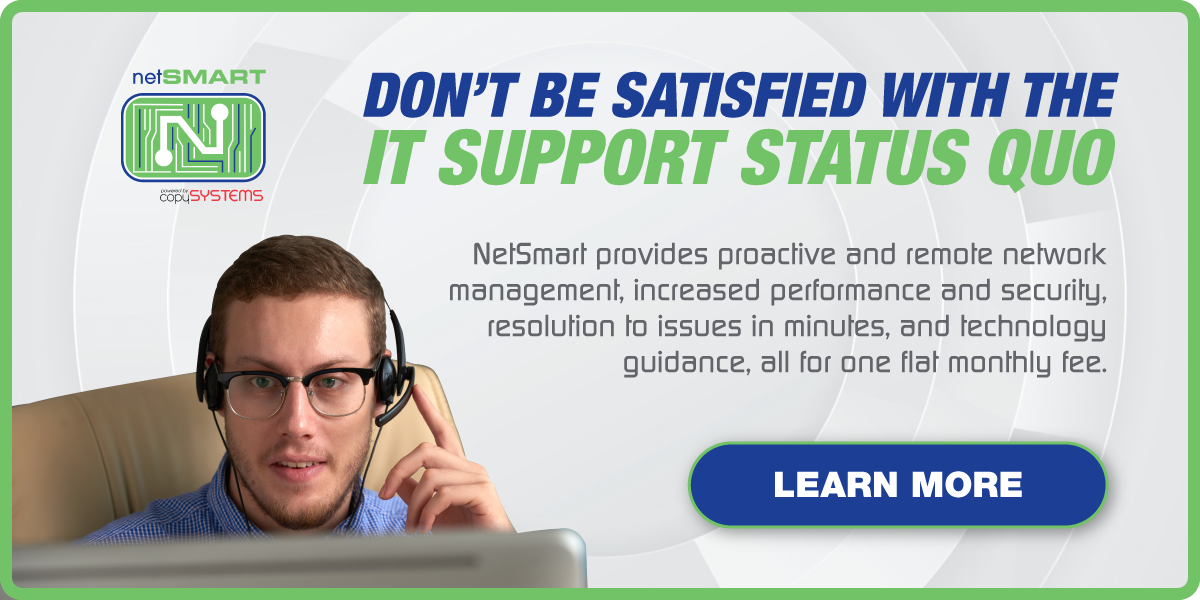What is Data Privacy?
Data privacy is the right to keep your information private. Today, thousands of businesses around the world want your information and will pay a lot of money for it. This includes classified information including personal identifiable information, financial information, and more. You may not think much of your name and birthdate being out in the world, but your Social Security number? Medical records? Banking information? This is sensitive information, and we all must do our part to protect it.
To clear any confusion, data privacy and data security are two different things. Data security shields from unauthorized use or access, and guards against any intrusion. Data privacy is the right to decide who can access that information. They are, of course, related terms, but not interchangeable.
Why Does Data Privacy Matter?
Data privacy should be taken seriously, especially by small businesses, and there are substantial consequences should a breach occur. Let’s discuss some of those consequences.
- Reputation: Data breaches simply never look good for businesses. For potential employees or clients, they will be looking for an organization that they feel they can comfortably trust. If they don’t feel they can trust your organization with their information, they are likely to look elsewhere.
- Finances: Depending on the severity of the data breach, your business could face severe financial losses. If hackers gain access to bank account information, they may drain accounts. Additionally, if a website is taken offline, you will lose revenue until the website is recovered.
- Legal Trouble: Businesses could face legal action for data breaches from affected individuals, customers, or shareholders. This can result in financial liabilities, including compensation for damages, legal fees, and other expenses.

Businesses can face serious consequences for data breaches.
Best Practices for Data Privacy
With this understanding of data privacy, what can your business do to protect itself? You’ll need a strategy!
Conduct Regular Data Audits
Do you know where your business stores personal information? Do you know what specific information is stored there? Do you know who has access to that information? If you aren’t certain of an answer to any of these questions, you will want to find out.
You will also want to review what data you collect and if you really need to have it on file. If you don’t need it, don’t keep it!
Establish Clear Data Privacy Policies
Set an example for your staff. Develop and communicate a clear, thorough data handling policy for your employees. In this policy, be sure to include procedures for obtaining customer consent and managing data access to protect your clients.
Implement Strong Access Controls
Those occasional two-step verification codes can be a drag, we know, but they serve a purpose. Including multi-factor authentication where you can is a great idea to protect data.
Furthermore, when granting permissions on your team management software, it is a good idea to grant access on a role basis. Allow employees access to what they really need, and not the extra data they don’t want or need.
Train Your Employees
With a policy in place, and as your business builds awareness and understanding, have regular training sessions with the staff on safety procedures. Emphasize data privacy and create a culture of security within the company.
Secure Your Data
Encrypt sensitive data storage and transmission. Make life as difficult as possible for potential hackers. Within the office, too, consider using firewalls and antivirus software to prevent viruses and malware.
Keep Software Up to Date
New patches and updates to software are available regularly. When they are, make a point of downloading those upgrades to have the latest, safest version of your software. Think of this as allowing your defenses to evolve with digital threats.
Have a Response Plan for Data Breaches
Even if you do everything right, there is still a chance of a data breach. Be proactive! Have an incident response plan for these threats. You may also appoint a response team with an outline of steps to contain the breach.

You can promote an office culture of data privacy with a response team to combat breaches.
Limit Data Collection
We mentioned this before, but when collecting data from clients or employees, consider what data you really need. Obtain the necessary data, but don’t ask for extra.
If you have unnecessary data, be sure to securely and systematically dispose of it.
Encourage Strong Password Policies
Did you know 81% of data breaches in 2022 were due to weak, reused, or stolen passwords? Make sure your staff knows the importance of strong, unique passwords. You may consider getting a password manager for your business, too.
Vet Your Vendors
This is a thought that may slip through the cracks, but how secure are the third-party services and vendors your company uses? Make sure they follow your privacy standards! If you aren’t sure, check your contracts for any data protection clauses. This is certainly a subject to bring up in negotiations with potential third-party vendors.
Monitor and Audit Compliance
When you have a strategy for data privacy, make sure you stay on top of those practices. Have regular audits and oversee a secure workplace.
Laws and regulations also change sometimes, so be sure to keep an eye on those updates and adjust accordingly.
Emphasize Data Privacy with Copy Systems
Data privacy is a subject to take seriously at your company. There are a lot of ways to improve data privacy practices to avoid the headache of severe breaches, and the impacts they can have.
Want to take your strategy to the next level? With Copy Systems, you can find comprehensive IT support, document storage/retrieval services, and more. We have been in business for over 50 years and are ready to support you with only the best service from our team of experts. Contact us today to learn more!





